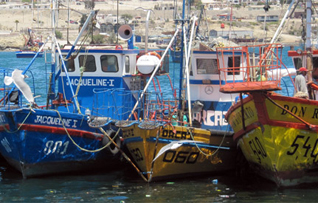 e’s seafood exports increased 9.9 percent for the first eight months of 2013, thanks to economic recovery in some markets and a higher premium for some of the country’s seafood.
e’s seafood exports increased 9.9 percent for the first eight months of 2013, thanks to economic recovery in some markets and a higher premium for some of the country’s seafood.Total exports rose to USD 3.5 million (EUR 2.6 million), up from USD 3.17 million (EUR 2.4 million) for the same period in 2012.
“Positive figures in the first eight months of 2013 are due to the inclusion of higher value-added and economic recovery of the markets, which has meant an increase in the price of products by 13.2 percent in exports from extractive [wild] fishing,” said Pablo Galilea, Chile’s undersecretariat of fisheries.
Chile’s main export was farmed salmon, which accounted for 41.2 percent, or USD 1.433 million (EUR 1.1 million), of the total value of seafood exports. In addition, 14.5 percent of the export sales figures were attributed to rainbow trout, followed by Pacific salmon (8.5 percent) and pelagic fish (4.3 percent).
Chile exported 121 different seafood products to more than 100 countries, and shipped most of its product to the U.S.
“The U.S. remains the top trading partner in the fisheries sector, accounting for 25 percent of the total value, and showing an increase of 27 percent over last year in the same period. Next is Japan…followed by Brazil, China and Russia,” Galilea said.
Galilea believes Chile’s fisheries exports have grown in part because of government reforms in both wild and farmed species.
"Since 2010, we have developed and approved in Congress 19 bills to cause a real change in fisheries and aquaculture, to give more stability to the sector. In the case of aquaculture, we established a health organization and more control for the salmon industry, along with supporting diversification and small-scale aquaculture,” Galilea said.
In Chile’s wild fisheries, the country’s Fisheries Act, which went into effect in early February, represents “one of the most important changes to the artisanal and industrial fisheries, with the main focus on sustainability of resources,” Gaililea said. “The new law gives priority to the criteria and recommendations on scientific by political, social or commercial decision-making fisheries management measures, such as catch quotas, bans or minimum sizes.”
Meanwhile, Chile also exported 168,000 tons of fishmeal valued at USD 310.2 million (EUR 228.3 million) for the first eight months of 2013. The biggest importers of the country’s fishmeal were China, Japan, and Spain.





